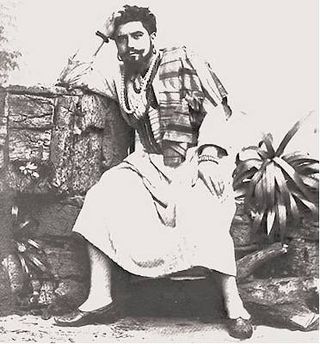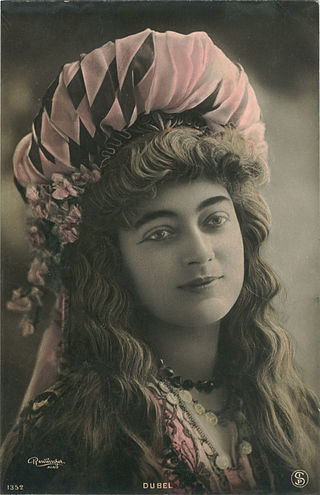Related Research Articles

Giuseppe Di Stefano was an Italian operatic tenor who sang professionally from the mid-1940s until the early 1990s. Called "Pippo" by both fans and friends, he was known as the "Golden Voice" or "The Most Beautiful Voice", as the true successor of Beniamino Gigli. Luciano Pavarotti said he modeled himself after Di Stefano. In an interview Pavarotti said "Di Stefano is my idol. There is a solar voice...It was the most incredible, open voice you could hear. The musicality of Di Stefano is as natural and beautiful as the voice is phenomenal". Di Stefano was also the tenor who most inspired José Carreras. He died on 3 March 2008 as a result of injuries from an attack by unknown assailants.

Maurice Arnold Renaud was a cultured French operatic baritone. He enjoyed an international reputation for the superlative quality of his singing and the brilliance of his acting.
Sir David McVicar is a Scottish opera and theatre director.
Neil Shicoff is an American opera singer and cantor and known for his lyric tenor singing and his dramatic, emotional acting.

Kamen Tchanev / Kamen Chanev was a Bulgarian operatic tenor who enjoyed an international career.

Albert Lance was an Australian tenor, also holding French citizenship. He was Australia's principal tenor during the 1950s and later enjoyed a highly successful career in France.
Richard Leech is an American operatic tenor, recipient of the Richard Tucker Award in 1988, and particularly associated with lyric roles of the Italian and French repertories.

Donald Sydney Smith OBE was an Australian operatic tenor. His voice had a bright Italianate quality which could match, in size carrying power and tonal allure, the voices of most sopranos and mezzos. He attracted a fiercely loyal public following, and many Australians who had no prior experience of opera became opera lovers through Smith's work. His performances were regularly sold out with the Australian Opera at the Sydney Opera House.
Edmond-Alphonse Vergnet was a French operatic tenor.

Agustarello Affre was a French operatic tenor. He possessed a powerful, firm and exceptionally beautiful voice which garnered him the nickname the "French Tamagno" in comparison to the great Italian tenor. He was one of the leading operatic tenors in Paris from 1890 to 1911. He spent the last years of his career singing and directing operas in the United States. After World War I, he lived in retirement in France.

Michel Trempont was a Belgian operatic baritone whose repertoire extended from the 18th century to the creation of contemporary works. His brother was Pol Trempont (1923–2007), operatic tenor and one time director of the Théâtre de Mons.
The Devriès family were operatic singers over three generations, of Dutch descent. They were mainly active in France, Belgium and the USA in the second half of the 19th and the early 20th centuries.

Fernand Ansseau was a Belgian lyric-spinto tenor.

Henri Albers, born Johan Hendrik Albers, was a Dutch-born opera singer who later became a French citizen. He sang leading baritone roles in an international career that spanned 37 years and was a prominent singer at the Théâtre de la Monnaie in Brussels and the Opéra-Comique in Paris, which was his base from 1900 until his death. He also sang in 36 performances with the Metropolitan Opera company from 1898 to 1899. He made many recordings for Pathé Records and specialised in the heavier baritone and basso cantante repertoire.

Marta Domingo is a Mexican opera soprano, stage director and designer. In the 1950s and 1960s, she performed as a lyric soprano in Mexico and Israel. Since the 1990s, she has directed operas in Europe and North America. She is married to Spanish tenor Plácido Domingo, who has credited her with helping to guide his career.
Alain Fondary is a French baritone.

Gilbert Py was a French tenor. The power of his voice ranks him among the heroic tenors, the fullest and most powerful of the tenors (Samson), also called tenore robusto and whose German equivalent is the Wagnerian Heldentenor. It is characterized by fullness, roundness and equal timbre, even in the treble.
Suzanne Sarroca was a 20th-century French operatic soprano.

Guy Fouché was a French operatic lyric tenor.

Yvonne Dubel (1881–1958) was a French operatic soprano from Rennes. After completing her studies at the city's Conservatoire, she débuted in 1904 at the Paris Opera as Elsa in Wagner's Lohengrin. In March 1911 at the Monte Carlo Opera, she created the role of Iole in Déjanire by Saint-Saëns. In addition to guest appearances in the French provinces (1907–1912), she performed in countries across Europe, including Belgium, Germany, Greece and the Netherlands.
References
- ↑ Gustave Botiaux at the archives of the Monnaie, accessed 9 February 2018.
- ↑ Jacqueline Sylvie on Artlyriquefr